According to the Japanese Consumer Affairs Agency, 1.3 billion tonnes of food is disposed of globally every year – that’s approximately a third of food produced for human consumption wasted. In Japan, 6.12 million tonnes of food waste occurs annually according to 2017 data by the Ministry of Agriculture, Forestry and Fisheries and the Ministry of the Environment. This is the equivalent of 1680 ten tonne trucks every day, or 48kg per individual per annum.
Austrian film director and food activist David Gross was intrigued by the paradox of Japan’s food waste as well as its tradition of respecting food through “mottainai” – a custom, phrase and philosophy unique to Japan. In 2015 he directed Wastecooking, his first feature length documentary about food waste in five European countries. It was during this promo tour that he came up with the idea of a sequel based in Japan. We asked David about his thoughts on the current issue of food waste in Japan.
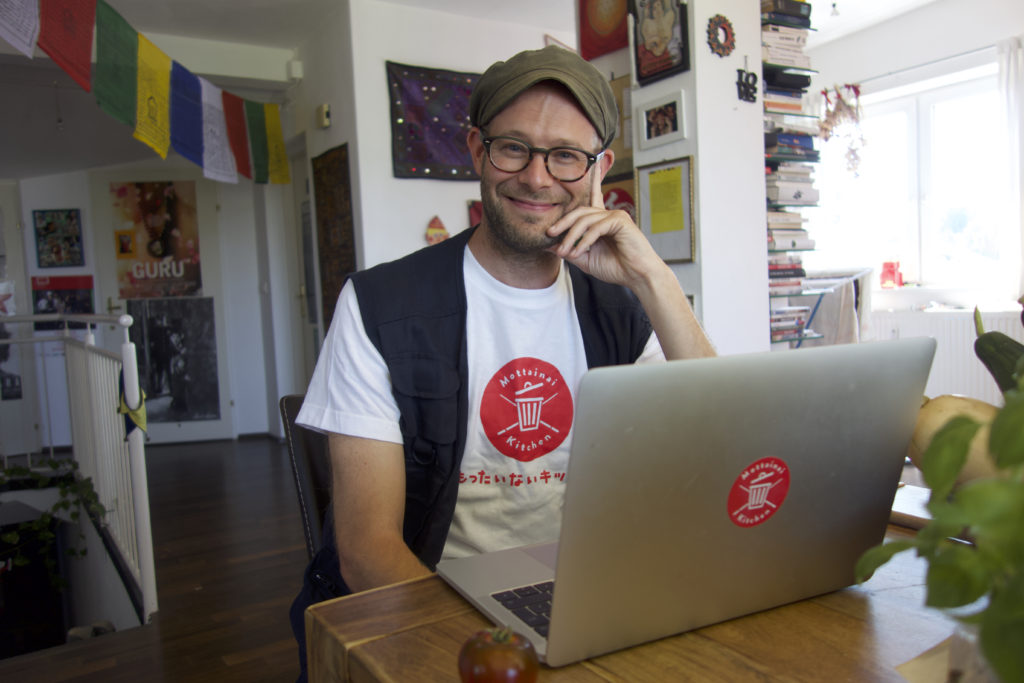
——How did you become a food activist as well as a film director?
David Gross:I started dumpster diving in 2012 in my hometown of Salzburg, Austria. It was curiosity that brought me to the dumpster behind a local supermarket. I discovered a lot of fresh, edible food inside that I took home, and invited friends and cooked and shared the food. So that’s how we found out that you can have a meal out of a dumpster and we soon started filming our activities. It all started with a bunch of friends in the neighbourhood. I never would have imagined that this activity would bring me to Japan!
——What kind of activities do you do as a food activist?
David:I don’t usually think of myself as a food activist but what I do is I rescue food that would otherwise go to waste and make something delicious out of it and share it with friends. Some food activists do social cooking activities like distributing food to the homeless or organise local food events. But I think the core of food activism is that you care about food as much as you care about human beings. That might be the difference between a chef and a food activist. There’s also a desire to raise awareness about the problems of the current system through such activities.
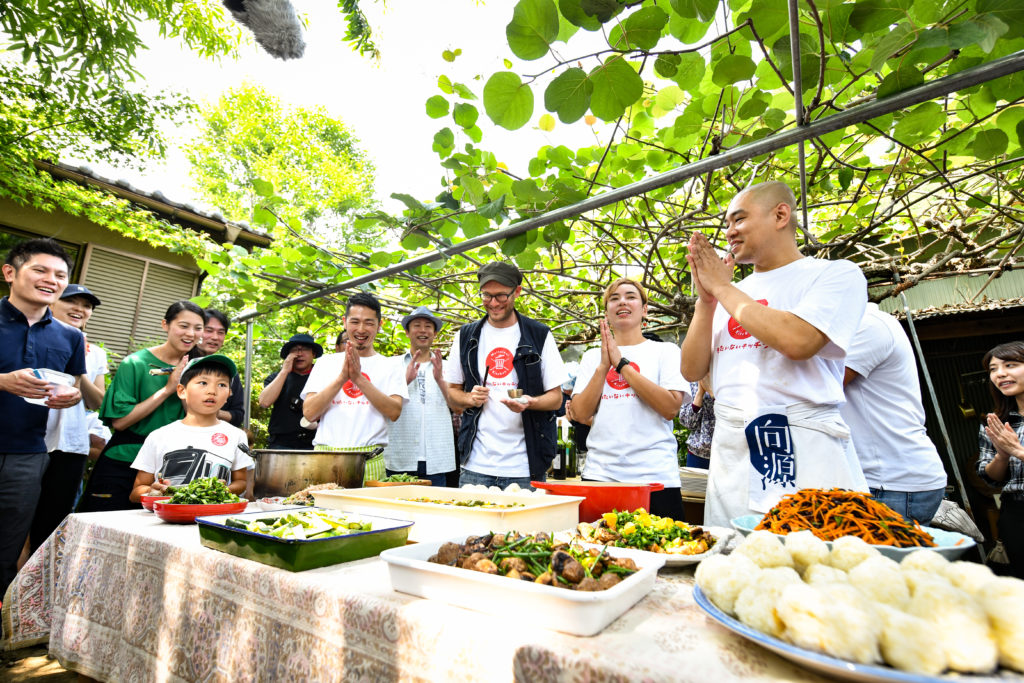
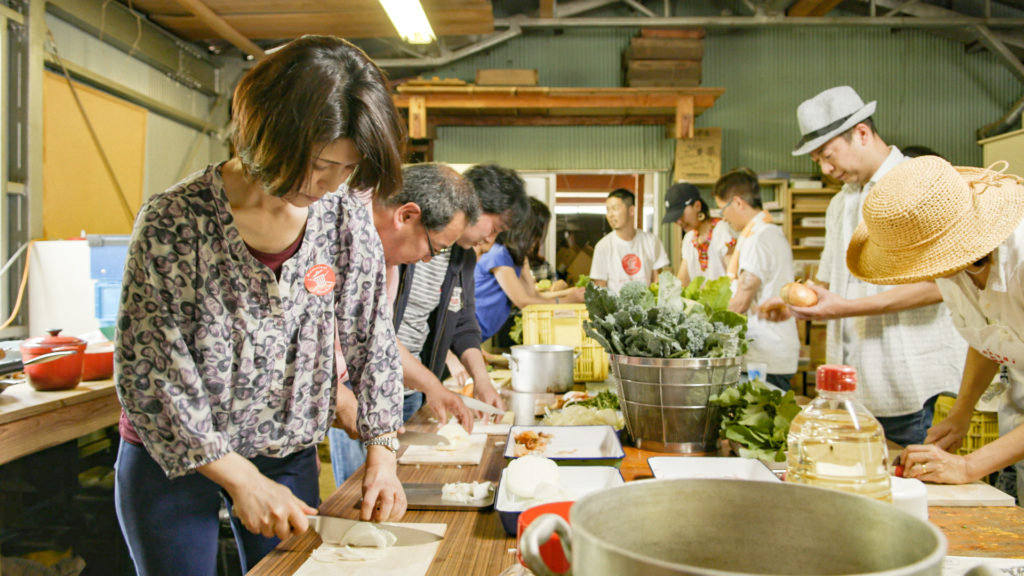
——So why did a filmmaker based in Europe decide to make a film about food waste and the concept of “mottainai” in Japan?
David:In 2017 I was invited to come to Japan for the first time by United People, the local distributor of Wastecooking. I met Kenji Sekine who would later become my film producer, and during the promotion tour I met Nikki, my interpreter. It was pure intuition – I simply had this vision of making a movie in Japan. Through many encounters I got to understand the uniquely Japanese concept of “mottainai” which stems from Buddhist philosophy, and is not only about not being wasteful but respecting all living things. It’s such a beautiful concept, yet at the same time, Japan currently has a industrial system that produces a lot of waste. As a food activist and filmmaker this paradox was very interesting to me.
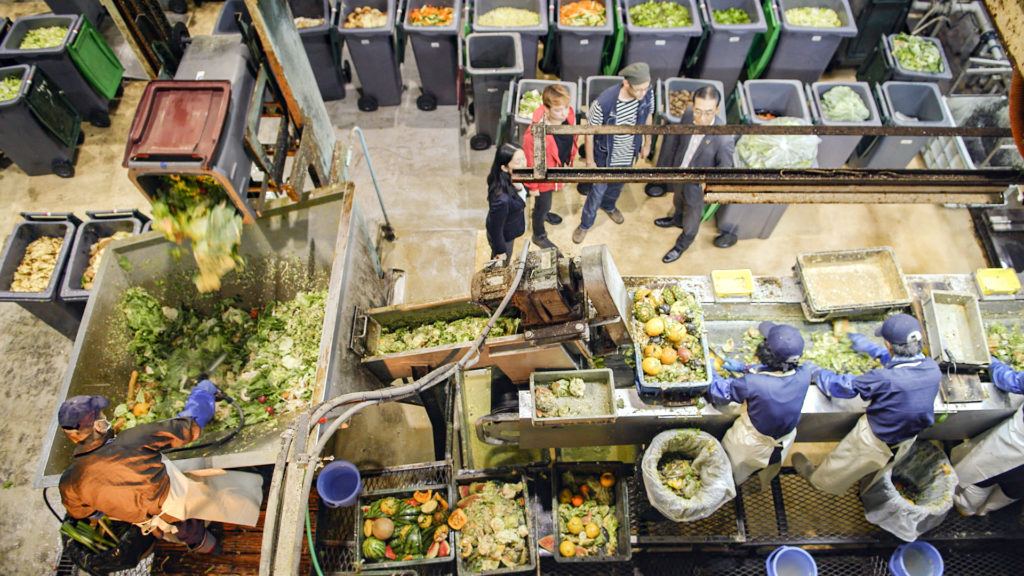
——Did you find that Japan wastes more food than other countries?
David:If you just look at the statistics it’s more or less the same amount of waste as other economically developed countries. In Japan waste in general is not very obvious. You hardly even see any trash cans in the street. I was very impressed by how people take their trash home. But I soon understood that there is a lot of waste; it’s just a bit more hidden. I wanted to shine a light on what was being hidden in the darkness.
A turning point to reconsider our food traditions
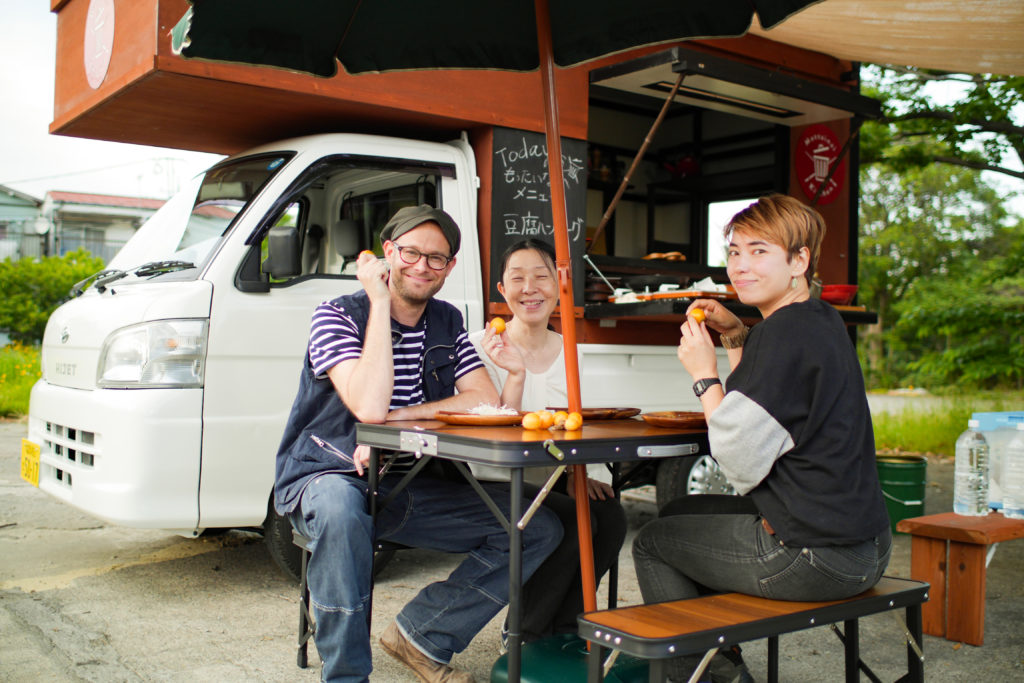
——Japan is well known for its rich food culture, but at the same time quick-fix foods convenience stores and fast food have become very common. What do you think about Japan’s current food culture?
David:For me it was a big surprise that traditional recipes like katsuobushi, natto, fermented foods didn’t seem to be popular among the younger generation. I’m addicted to these natural Japanese cuisines. It’s a healthy and sustainable diet but at the same time these fast food chains are everywhere. But I think it’s a phenomenon you’ll find anywhere in the world, not just Japan. I hope that these crises we’re now facing, like the climate crisis and COVID-19, will be a turning point to going back to more traditional roots of our food culture and reevaluating our own lifestyles. I really do hope so.
——With the mainstreaming of convenience stores and fast foods, we are putting less and less time and effort on our food. My personal impression is that people overseas spend more time enjoying dinners.
David:That’s a very interesting question because I had always imagined that people in Japan enjoy their dinners together as a family. But the truth is we both have fast food restaurants. Almost anywhere in the world we are facing a lack of time to really enjoy sitting together. Even I myself will sometimes rush into a convenience store and eat a burger during filming or editing because I don’t have enough time to cook.
Blaming the fast food industry isn’t the solution. If we really want to make meaningful change, we need to think about the way we work and how much time we give to food and human relationships. What is very important is to sit together and take time and really relax. I think the challenge is to have a more simple lifestyle so that in the end it will be a happier one. It’s a work in progress for me too.
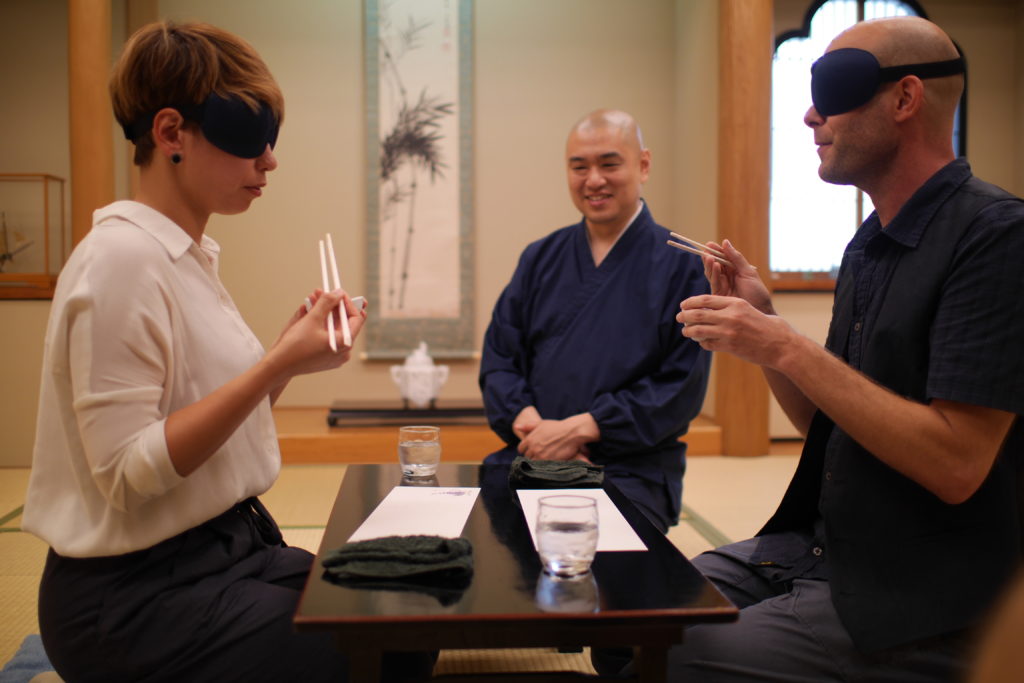
——These days it’s less common to see our food in a whole, unprocessed state – especially meats. Do you think this lesser awareness of our foods once being living beings has something to do with lessening interest in food?
David:When I travelled to countries in Africa, South America or Asia I saw whole animals in the market. They prepare and chop the animal in front of your eyes. It was very shocking when I saw it for the first time but of course this is totally true, we have lost that connection to where our food comes from, and that feeling of gratitude for it. I recently met a little girl in elementary school and she had no idea that the piece of meat on her plate came from a cow! That was an interesting moment. So yes, we do need to reconnect better and raise that awareness towards our food.
——You touched upon food produce from Fukushima Prefecture in the film. Are people overseas still hesitant about eating food from Fukushima?
David:Yes, I think people are still hesitant, to be honest. I don’t think my friends or family in Austria would eat anything that’s labelled Produced in Fukushima. Some people are especially cautious about seafood, and some won’t eat anything from Japan. But there is also a lack of knowledge. Many people think Fukushima is the name of just one town, like Chernobyl. They have no idea that it is part of a huge prefecture of the same name. The lab we visited for Mottainai Kitchen gave us a deeper insight into the data and science. My personal lesson was that it is very easy to have a black/white or good/bad impression but it is important to listen to experts and read different articles. My recommendation is; make up your own mind and learn for yourself by doing your own research.
——What left the biggest impression on you during your filming journey through Japan?
David:If I had to pick out from the people we met, it would have to be Grandma Wakasugi and Earth Boy, the advocate for insect cuisine. If you watch the film you can see how they are both connected to nature for their quest for food. One is an embodiment of old traditional knowledge and the other is full of new, innovative ideas. Both were fascinating and felt very Japanese to me.
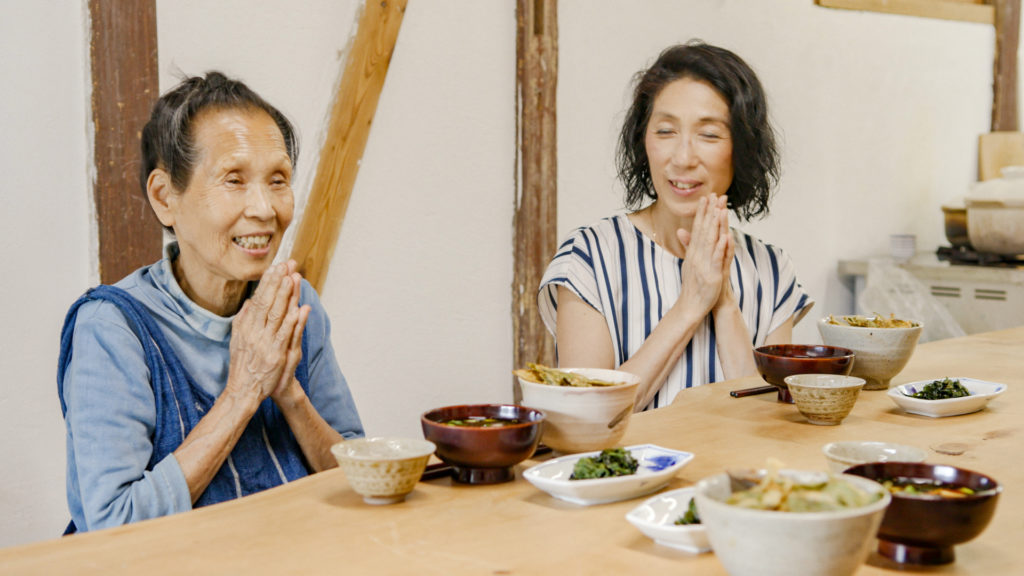
——What can people do if they want to take action for food waste after watching this film?
David:It’s always best to start with your own self. Start with your kitchen, your cooking pots and your fridge. Take a second look at expired food, maybe smell and taste it and try finding new ways of cooking. Invite your friends, exchange recipes and have a potluck party. If you want to do more the next step is to communicate the changes you made. Your friends will notice that you are cooking better. They might see you as a role model somehow and they become inspired and start making their own changes. The final step is to build a network with your local businesses and organise to spread the change. The more you cook the less you waste, and the more food you can rescue. I jumped into a trash can in Salzburg, Austria and somehow, through everything, came back out the other side in Japan! Taking action will change your life. So I encourage everyone to take that first step.
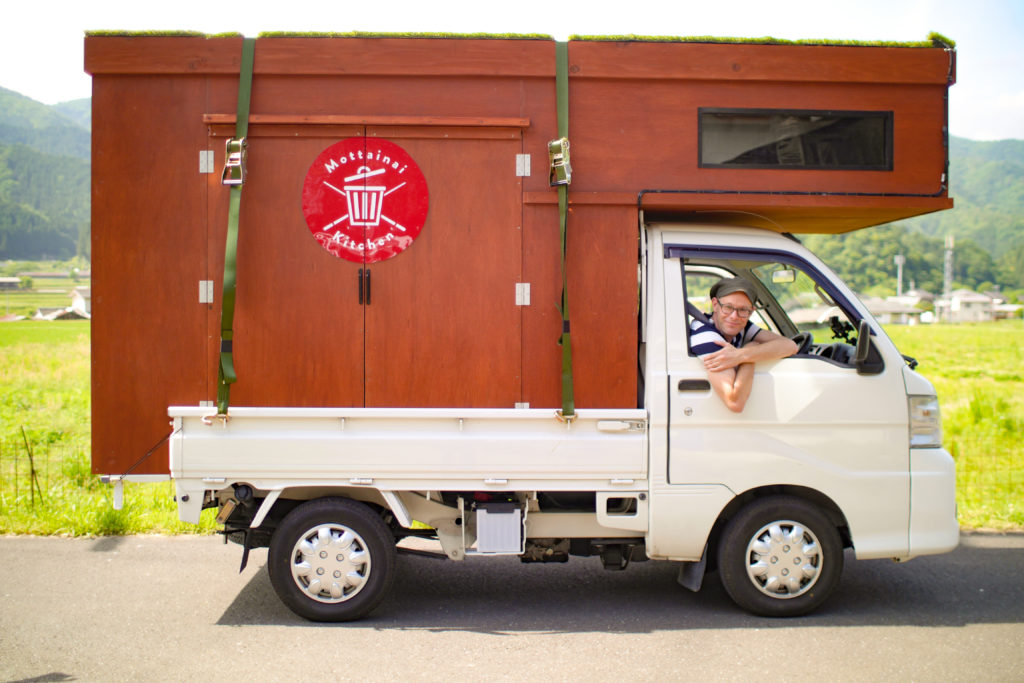
David Gross
Born in 1978 in Austria, David is a TV journalist, film maker, and food activist. After some time as a dumpster diver, he started his cross media project Wastecooking and travelled throughout Europe to document his food rescue plights. After a successful TV series, he created a feature length film of the same name which was later released in Japan. In 2020, the sequel Mottainai Kitchen was released.
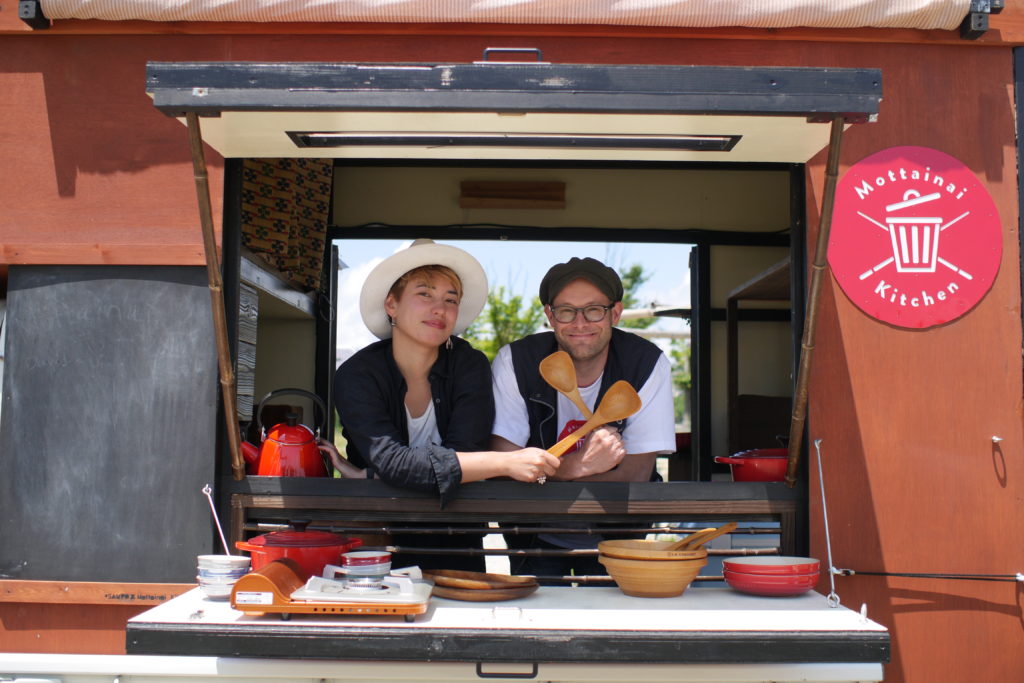
Mottainai Kitchen is a documentary roadmovie spanning 1600km across Japan as David Gross rescues food from going to waste from convenience stores to family homes. The film shows various ways waste can turn into a delicious meal, and the many joyful encounters he finds on the way. Currently playing in select cinemas around Japan.
https://www.mottainai-kitchen.net
Translation Nikki Tsukamoto Kininmonth
